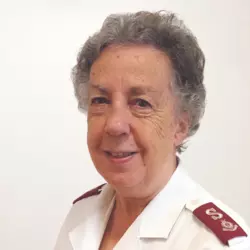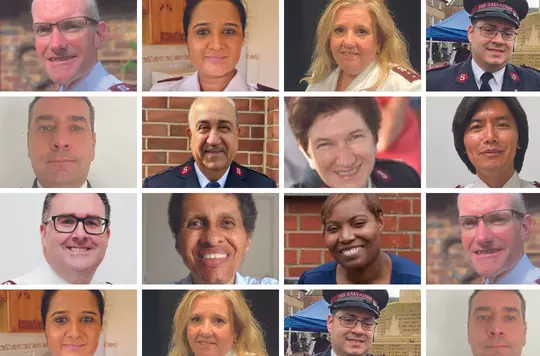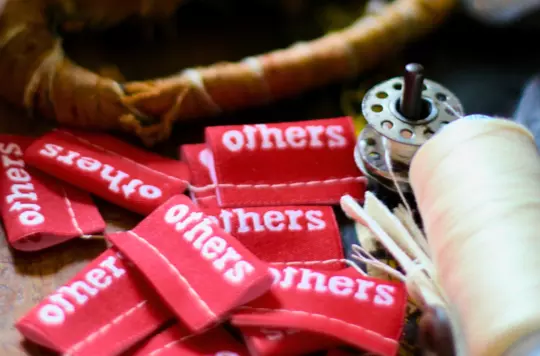4 November 2023
Free from sin: Serving a righteous master
Major Philippa Smale
Major Philippa Smale considers our bond with a forgiving, encouraging God.
Key text
Harriet Tubman was born in Maryland, USA, in 1822. After escaping her life of slavery by finding freedom in Philadelphia, she made 13 trips back to Maryland to rescue some 70 slaves, including her family and friends. She used a network of anti-slavery activists and safe houses known as the Underground Railroad. She never lost anyone. Harriet died in 1913.
To Harriet, who was a devout Christian, the idea of anyone being enslaved to another human being was anathema. Slavery is still an abomination today – and it still exists in various guises. Human trafficking is one of the worst forms but there are other kinds where people serve a cruel individual or group. Enforced slavery means that a person cannot choose their boss. Some types of slavery, however, can involve an element of choice.
Pause and reflect
- What forms of slavery would you say involve choice?
In Paul’s day, slavery was a fact of life. Many slaves had no choice. Because of their circumstances, they belonged to other people and had to serve them. They had no free will and no provision was made for them to be able to make decisions for themselves.
It wasn’t Paul’s idea to abolish slavery. In fact, he told slaves who had become Christians to obey their masters and be the best slaves they possibly could be. He wrote: ‘Slaves, obey your earthly masters with respect and fear, and with sincerity of heart, just as you would obey Christ. Obey them not only to win their favour when their eye is on you, but as slaves of Christ, doing the will of God from your heart’ (Ephesians 6:5 and 6). However, he did acknowledge that there were different kinds of slavery: there was enforced slavery and there was a slavery that people could choose.
In an interview in the 3 June issue of War Cry, Sarah Fairbairn talked about her addiction to drugs. ‘Addiction wants you isolated,’ she said. ‘It wants you on your own and, ultimately, addiction wants you dead. The opposite of addiction is connection, love, encouragement and belief… God holds me and lets me know that I’m loved. I am going to get it wrong sometimes, but there is grace for me.’ Sarah’s encouragement comes from her Christian faith.
Pause and reflect
- What would you say is the opposite of addiction?
In our study passage, Paul talks about slavery to sin, which ‘leads to death’ (v16). He goes on to say: ‘You have been set free from sin and have become slaves to righteousness’ (v18). The choice has been made and the Roman Christians now serve a different master – Jesus. Because of Christ’s sacrifice on the cross and his resurrection, they are able to become a part of a Household that is not of this world. The Master of this Household is like no earthly master, and he gives his ‘slaves’ the opportunity to live righteous lives ‘leading to holiness’ (v19). The result is ‘eternal life’ (v22).
The idea of master and slave is still there, but it takes on a whole new meaning in Paul’s mind. Christians become slaves to Christ through making a life-changing choice and that change is infinitely for the better. There is no one a person can choose as master in this world who can offer righteousness, holiness and eternal life.
Addiction is a jealous and unforgiving master. It is the direct antithesis to Jesus – who embodies forgiveness and encourages people to belong to one another, as they become children of God.
The things we might choose as masters in this world are the opposite of what we experience as children of God. The fruit of the Spirit is ‘love, joy, peace, forbearance, kindness, goodness, faithfulness, gentleness and self-control’ (Galatians 5:22 and 23). The opposite of these – the ‘anti-fruit’ – could be listed as hate, joylessness, discord, impatience, cruelty, wickedness, faithlessness, harshness and self-indulgence.
Pause and reflect
- What would your list of ‘anti-fruit’ comprise?
Another characteristic of a child of God is, of course, righteousness. In Paul’s view, righteousness makes a good master. What would the opposite of righteousness be? Perhaps ‘evil’ is the word that sums it up the best.
The psalmist writes: ‘The Lord reigns for ever; he has established his throne for judgement. He rules the world in righteousness and judges the peoples with equity. The Lord is a refuge for the oppressed, a stronghold in times of trouble’ (Psalm 9:7–9).
In another psalm we read: ‘The Lord has dealt with me according to my righteousness; according to the cleanness of my hands he has rewarded me. For I have kept the ways of the Lord; I am not guilty of turning from my God’ (Psalm 18:20 and 21).
Pause and reflect
- What does being a slave to righteousness mean to you?
If righteousness is our master, it means that Jesus is our Master – for he embodies all that righteousness is. In Psalm 31:1–3, we read: ‘In you, Lord, I have taken refuge; let me never be put to shame; deliver me in your righteousness. Turn your ear to me, come quickly to my rescue; be my rock of refuge, a strong fortress to save me. Since you are my rock and my fortress, for the sake of your name lead and guide me.’
Bible study by

Major Philippa Smale
Retired Officer, Truro
Discover more

The UKI Territory’s team of intercultural mission officers introduce themselves.

Major Jo Moir introduces the latest handcrafted products from Others UK – Trade for Hope.

Find out how you can stand in solidarity with survivors this Anti-Slavery Day (18 October) and beyond.

